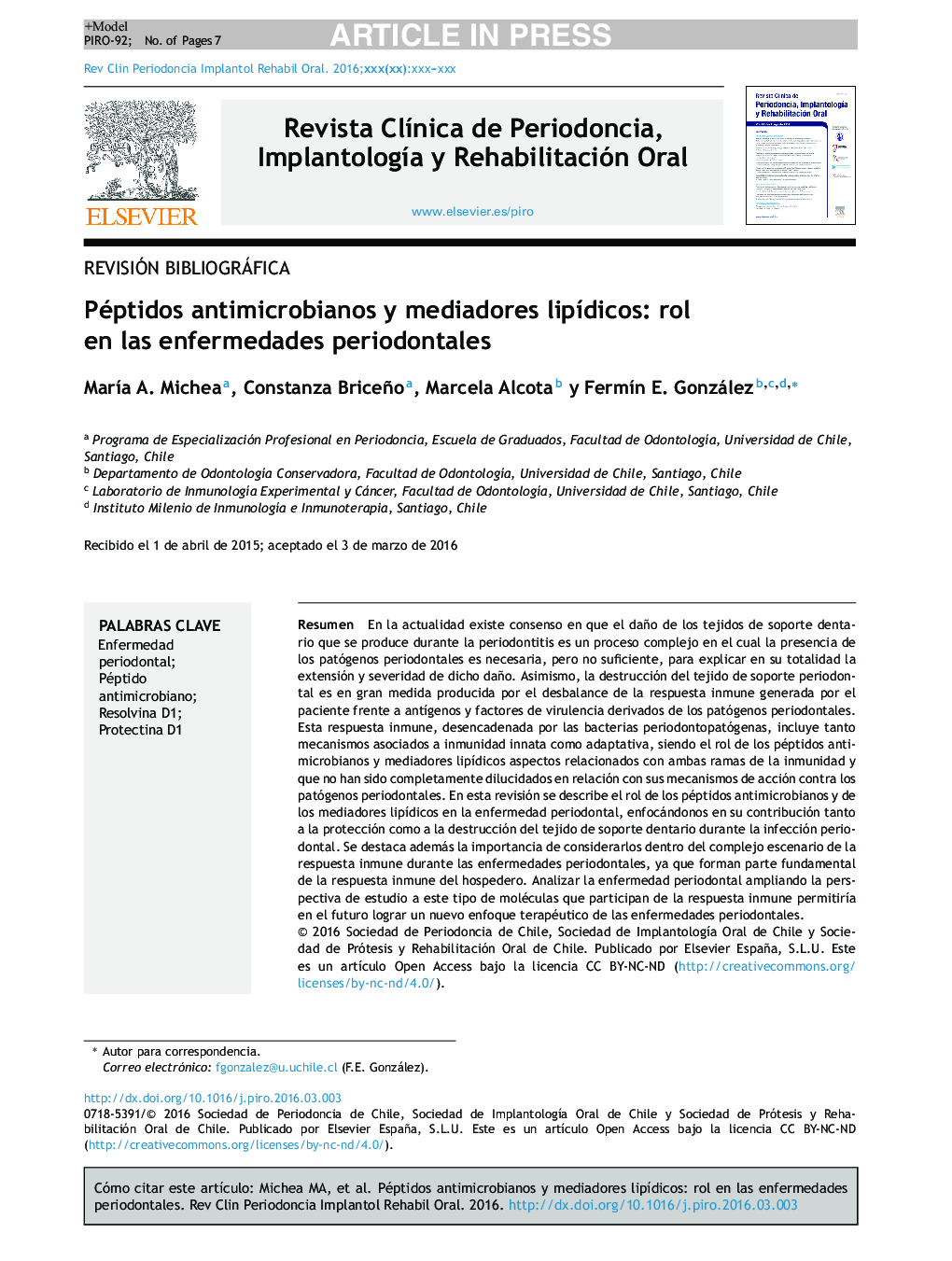| Article ID | Journal | Published Year | Pages | File Type |
|---|---|---|---|---|
| 8708120 | Revista Clínica de Periodoncia, Implantología y Rehabilitación Oral | 2016 | 7 Pages |
Abstract
Currently, there is consensus that the damage of the tooth support tissues that occurs during periodontitis is a complex mechanism, in which the presence of specific periodontal pathogens is necessary, but not sufficient, to fully explain the extent and severity of the observed periodontal destruction. Moreover, the destruction of periodontal support tissue is largely the effect of the imbalance in the patient immune response, triggered by periodontal pathogen-derived antigens and virulence factors. The immune response elicited by periodontal pathogenic bacteria includes mechanisms associated with both innate and adaptive responses, where the role of antimicrobial peptides and lipid mediators are related to these two arms of immunity, and have not been fully elucidated in relation to their mechanisms of action against periodontal pathogens. In this review, a discussion is presented on the characteristics of these molecules and their role in periodontal disease in relation to both protection and destruction of tooth supporting tissue during periodontal infection. The relevance of considering these mediators within the complex scenario of the immune response during periodontal diseases is also highlighted, since they are a fundamental part of the host immune response. Periodontal diseases should be analysed in a broader perspective, where the study of these types of molecules involved in the immune response of periodontal tissues, may help to develop new therapeutic approaches to periodontal diseases in the future.
Related Topics
Health Sciences
Medicine and Dentistry
Dentistry, Oral Surgery and Medicine
Authors
MarÃa A. Michea, Constanza Briceño, Marcela Alcota, FermÃn E. González,
